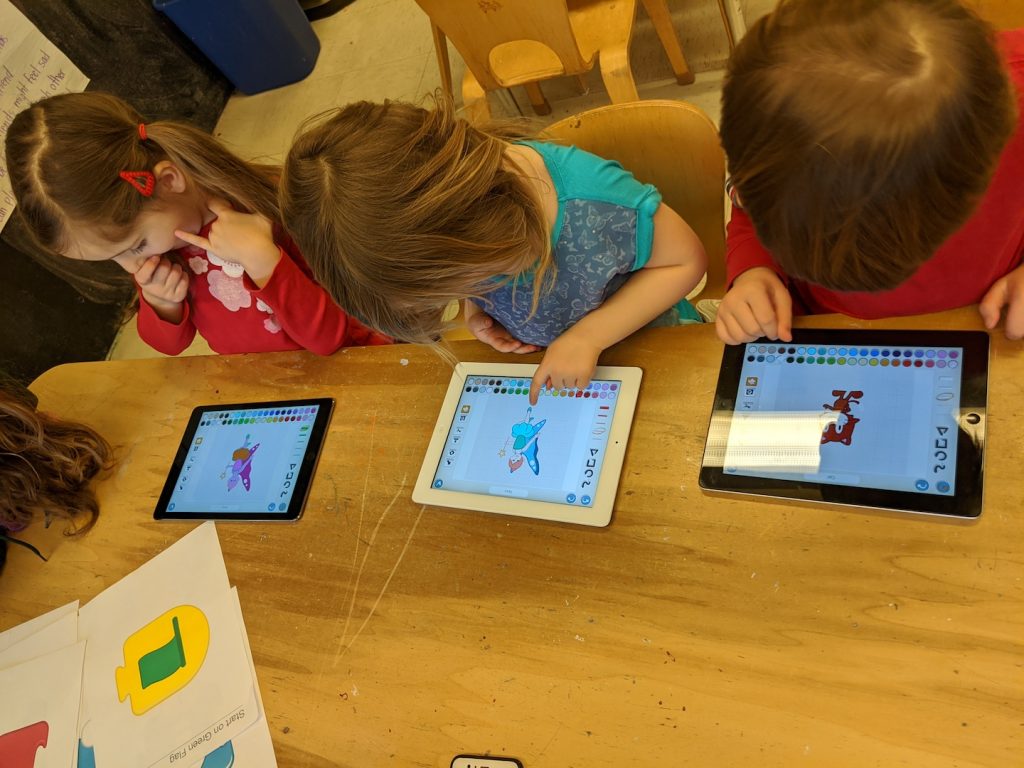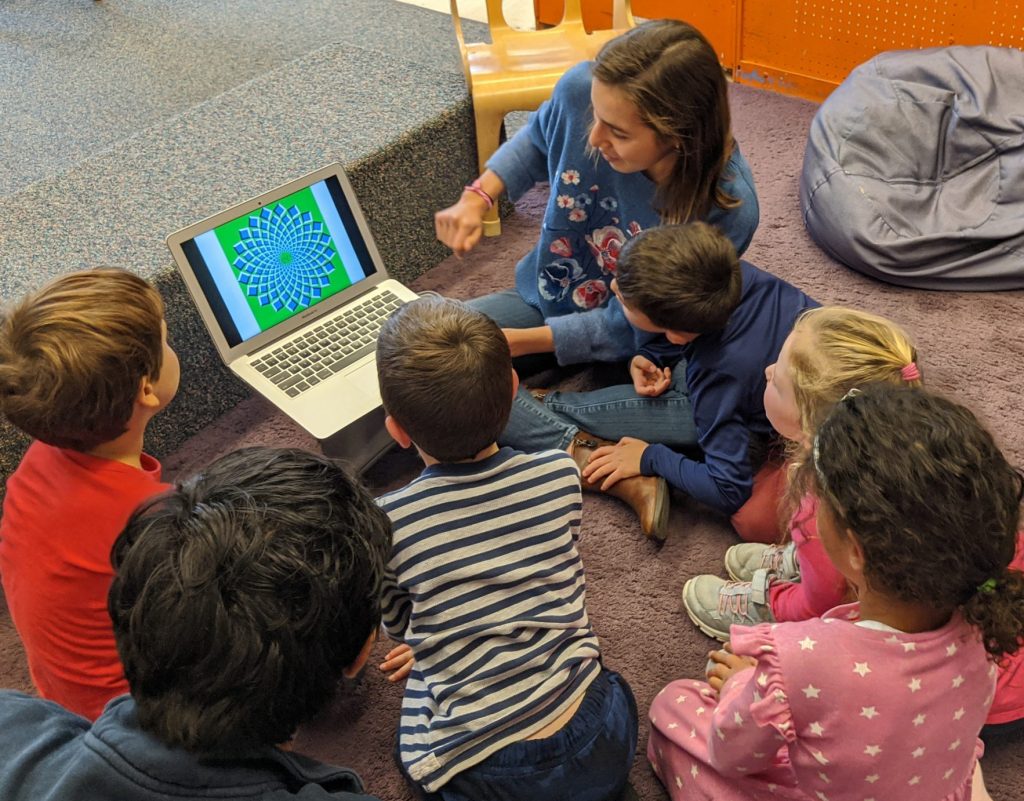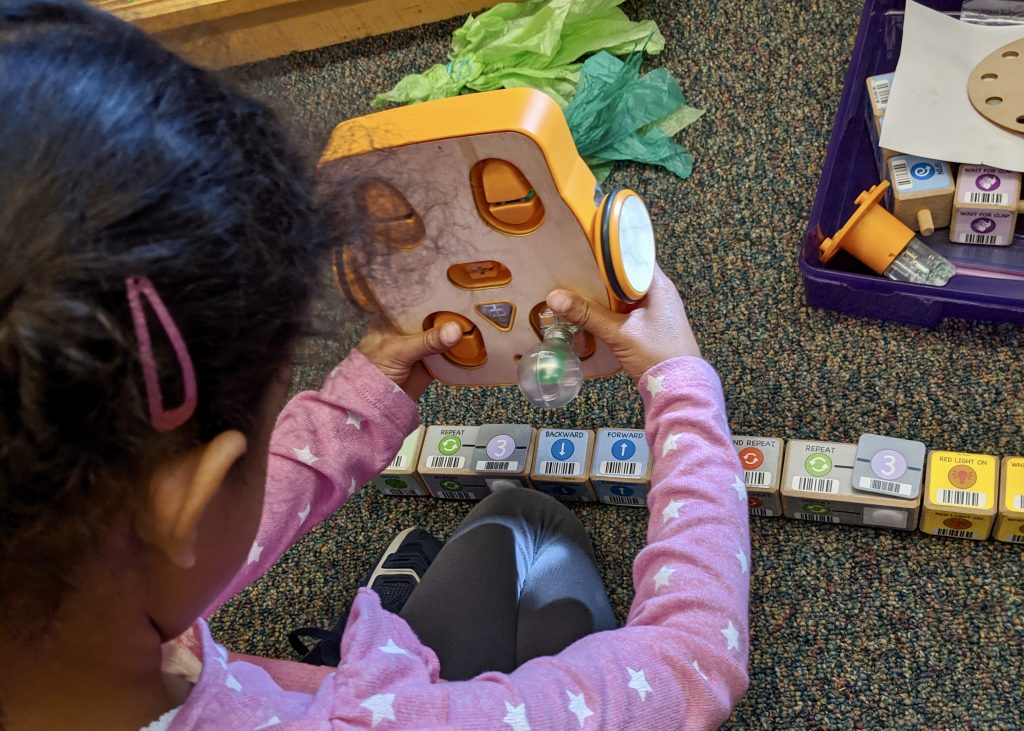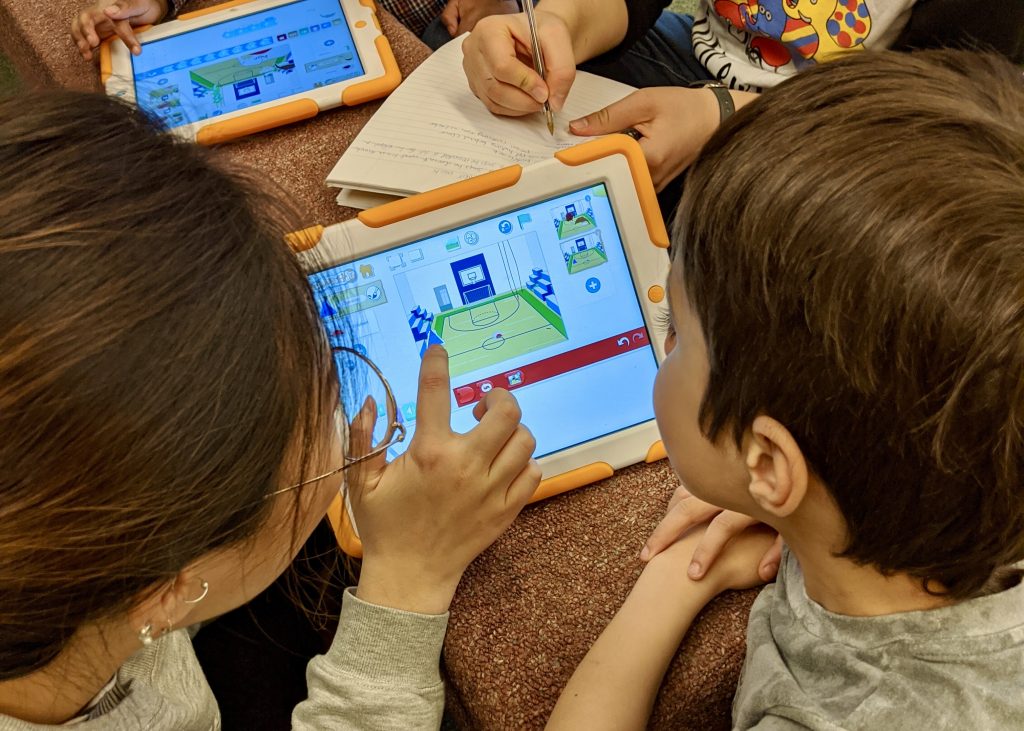Developmental Technologies
EPCS’s socio-constructivist and project-based model of teaching and learning aligns with the Positive Technological Development pedagogical framework on early childhood technology education. It promotes children’s active engagement in the learning process, characterized by play-based developmentally appropriate methods and practice, with a focus on social and collaborative dimensions of learning.
- The constructionist theory of learning
- Interdisciplinary, child centered and mindful use of technology
Developmental technologies are an integral part of the context of young children’s lives. They serve as tools and processes to promote effective learning and development when used intentionally and within the framework of developmentally appropriate practice.
Developmental technologies are tools purposefully designed and applied with the goal of supporting young children’s holistic development and learning. At EPCS, children are introduced to the concept of engineering, coding, and robotics. They practice using problem-solving processes, tools, and strategies to solve problems we encounter in our daily lives. The children develop coding as a literacy skill using tangible programming language designed for children 8 years old and younger. Children actively engage in learning experiences using both unplugged and plugged technology to acquire and develop computational thinking skills, computing concepts, procedures and processes, as well as social collaboration skills that enhances their problem-solving competencies.
- Unplugged technology includes puzzles, board games, visualization and movement activities.
- Plugged technology refer to electronic/digital devices and software applications, such as Kibo Robotic Kit and Scratch Jr. that were designed for preschoolers and primary grade children.
Our Engineering and Robotics Program offers a hands-on experience for young children through play and engages them in learning experiences that focus on technology and engineering:
- To support children’s creative thinking, investigation, innovation, communication, collaboration, problem solving; decision making using technology and engineering concepts, operations and systems
- Collect and analyze data to problem solve and/or make informed decisions; and transfer existing knowledge to learning of new technologies
- Use multiple processes and diverse perspectives to explore alternative solutions
Photo Gallery



